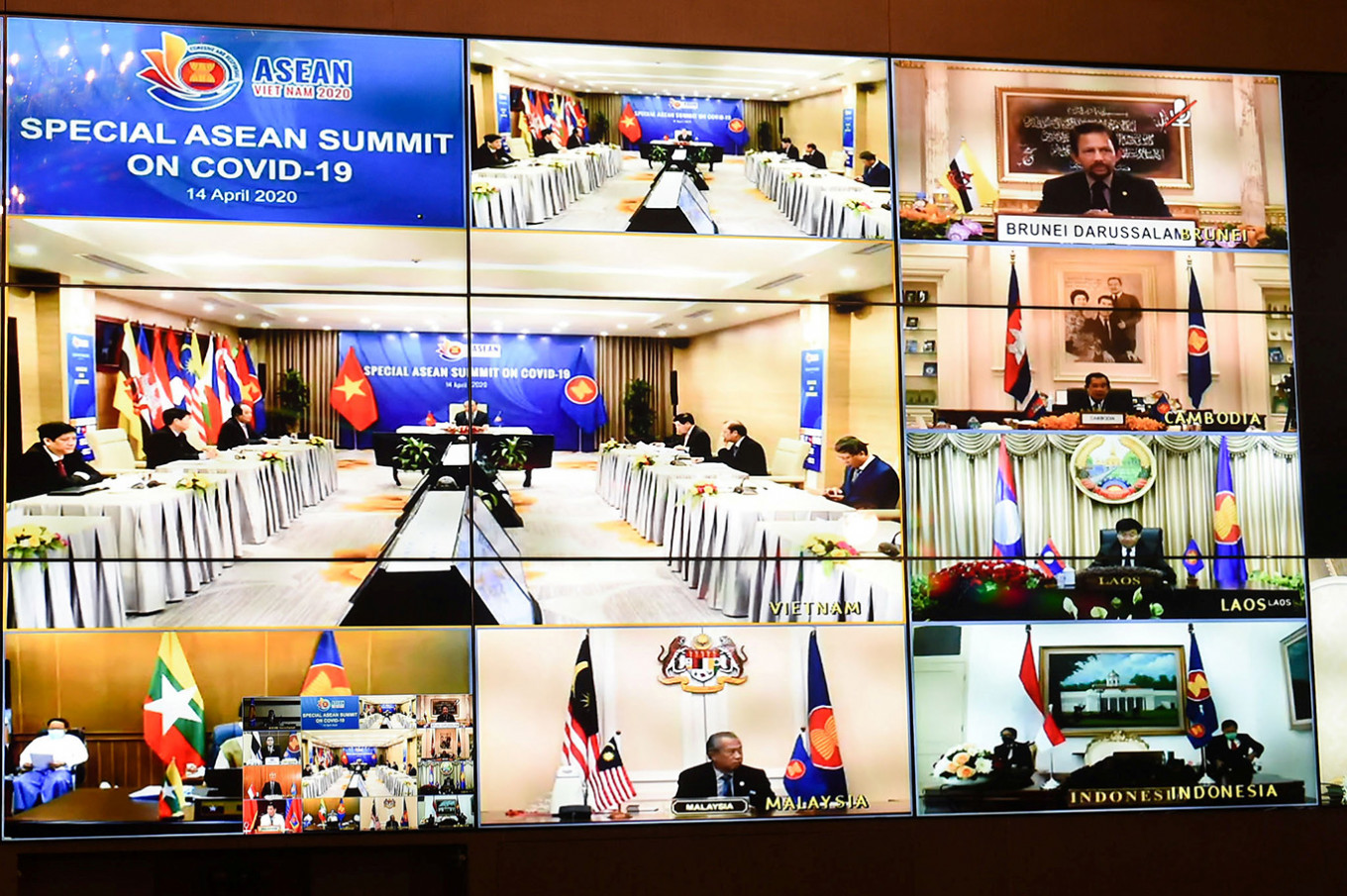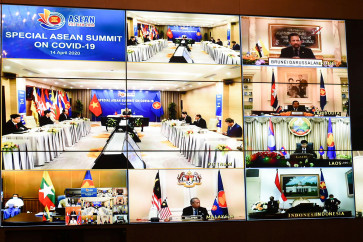Popular Reads
Top Results
Can't find what you're looking for?
View all search resultsPopular Reads
Top Results
Can't find what you're looking for?
View all search resultsASEAN: Toward residential energy efficiency
The current situation would be a perfect moment for ASEAN countries to stimulate energy efficiency improvements.
Change text size
Gift Premium Articles
to Anyone
 Leaders of the Association of Southeast Asian Nations (ASEAN) are seen on screen as they attend a special summit via video conference to discuss the the coronavirus disease (COVID-19) situation at the Government House in Bangkok, Thailand, April 14, 2020. (REUTERS/Thailand Government House/Handout )
Leaders of the Association of Southeast Asian Nations (ASEAN) are seen on screen as they attend a special summit via video conference to discuss the the coronavirus disease (COVID-19) situation at the Government House in Bangkok, Thailand, April 14, 2020. (REUTERS/Thailand Government House/Handout )
I
t has been half a year since COVID‑19 was first reported in December 2019, followed by the World Health Organization declaring the disease a pandemic in March 2020. Around the world, including Southeast Asia, governments have asked people to stay at home and imposed closures or lockdowns to contain its spread.
Metropolitans like Jakarta have turned cleaner in regard to air pollution. People are commuting less and so, fewer vehicles are on the streets. Industries are slowing down their production or suspending operation. People are changing their behavior; they are staying at home.
This change of behavior has impacted energy demand. In Indonesia, state electricity company PLN said overall electricity consumption will fall by up to 1.2 percent, which is mostly driven by lower demand from industries and businesses. Nonetheless, what one could miss is that the decline in industry and commercial energy demand has offset residential electricity consumption, which has increased by 7.54 percent in the past three months.
This is happening not only in Indonesia but also globally, according to the International Energy Agency Global Energy Review on the impacts of the COVID-19 crisis. This shift in energy demand from the industrial and commercial sectors to the residential sector will in turn lead to higher household electricity bills.
ASEAN governments such as Indonesia, Malaysia and Thailand have responded by launching economic stimulus packages to address the rise in household electricity expenditures. In Indonesia, PLN has provided a free and discount stimulus to 31 million low- and middle-income households for the period of April to June.
While in Malaysia, the government announced a tiered rebate for electricity bills of between 15 and 50 percent for domestic users in Peninsular Malaysia. Similarly, in Thailand, the Ministry of Energy proposed to cut electricity charges for 22 million households for three months from March to May.
However, this approach may not last forever and a strategy to maximize long-term benefits is needed. These behavioral changes due to the health crisis might will be a new normal. Therefore, energy efficiency measures could be one of the most effective ways to bring a long-term transformation that will help reduce electricity expenditures while accelerating economic recovery. That’s why governments could channel their stimulus through energy efficiency programs, for example, in the residential sector.

















